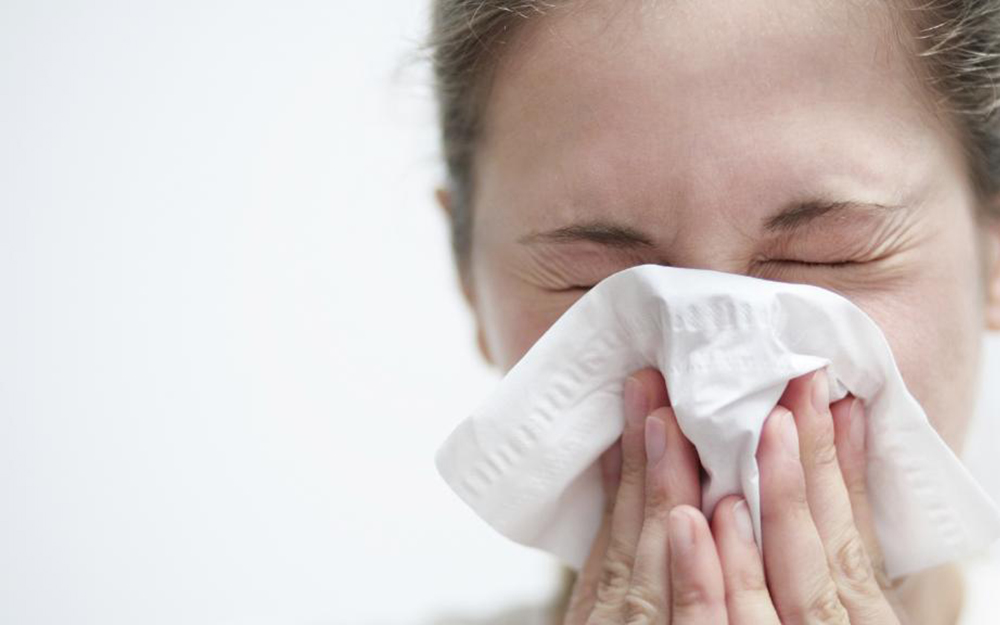
BY DR PETER KADILE
It’s finally starting to cool off and cold and flu season is just around the corner. As I’ve always stressed, it’s important to drink plenty of water, obtain adequate sleep, supplement with vitamin D and most importantly wash your hands to prevent you from getting sick.
What is the difference between a cold and flu?
Terry, Indio
The flu and the common cold are both respiratory illnesses but are caused by different viruses, They can have similar symptoms but generally flu symptoms are more severe. Cold symptoms usually include head congestion, runny nose, sneezing and a cough, Flu symptoms generally include dry cough, body aches, fevers, extreme fatigue and sometimes nausea, vomiting and diarrhea. Colds usually do not progress into serious health conditions, but the flu may develop into pneumonia or other conditions that may require hospitalization.
Colds and flu are caused by viruses, not bacteria, thus they will not respond to antibiotics, so don’t go running to the urgent care for a Zpack. In severe cases of the flu, a secondary bacterial pneumonia may develop that would require the use of antibiotics.
Can the flu shot give me the flu?
Elwood, Desert Hot Springs
No Elwood, the flu shot cannot give you the flu. The most common side effects from the influenza shot are soreness, redness, tenderness or swelling at the injection site. A low grade fever, headaches and body aches may also occur, but these symptoms are not to be confused with actual influenza infection.
If someone actually develops the flu shortly after receiving the flu shot, that person may have been infected by the influenza virus just prior to receiving the shot. The person is getting ill from exposure to the flu before protection from the flu vaccine can take effect.
Dr. Kadile, I got the flu shot last year, but I still ended up getting the flu. What’s up with that?
Mark, Morongo Valley
Mark, the flu shot is not 100% effective in preventing the flu. Its effectiveness varies every year, but generally it is only @ 60% effective. During last year’s flu season, that flu vaccine was only @23% effective. Every year a panel of experts decide on which flu strains may become predominant and formulate the vaccine. The experts make a scientific prediction on which flu strains will need to be vaccinated against. They of course don’t always get it right and sometimes the flu virus can mutate and change, rendering the vaccine ineffective.
Doc, why don’t I just take antiviral medication if I get the flu instead of getting the flu shot?
Pedro, La Quinta
Pedro, antiviral medications such as, Tamiflu, Relenza and Rapivab, are indicated for treatment of the flu. These medications need to be taken within the first 48 hours of developing the flu to be effective. If they are effective, they have only been shown to decrease the duration of the flu by 1-2 days. They typically cost @ $100 for treatment and are generally not covered by insurance. They are not without possible side effects; severe skin rashes, blistering, changes in behavior and more commonly nausea and vomiting.
Antivirals are indicated for people who are sick enough to be hospitalized with the flu, those with severe health problems such as asthma, pulmonary disease or heart disease, adults age 65 or older, morbidly obese and residents of nursing homes.
The flu vaccine is meant to prevent you from getting the flu, while antiviral medications mentioned above, treat you if you already have the flu.
Dr. Peter M. Kadile is Board Certified in Family Medicine. He has an integrative,
osteopathic medical practice and is also known as the local, house call doctor; Desert House Call Physician. He is on staff at Eisenhower Medical Center and medical director for Serenity Hospice. His office is located in beautiful Old Town La Quinta, 78-100 Main Street, Suite 207, La Quinta, CA 92253. (760) 777-7439. DesertHouseCalls@aol.com. deserthousecalldoc.com.











































